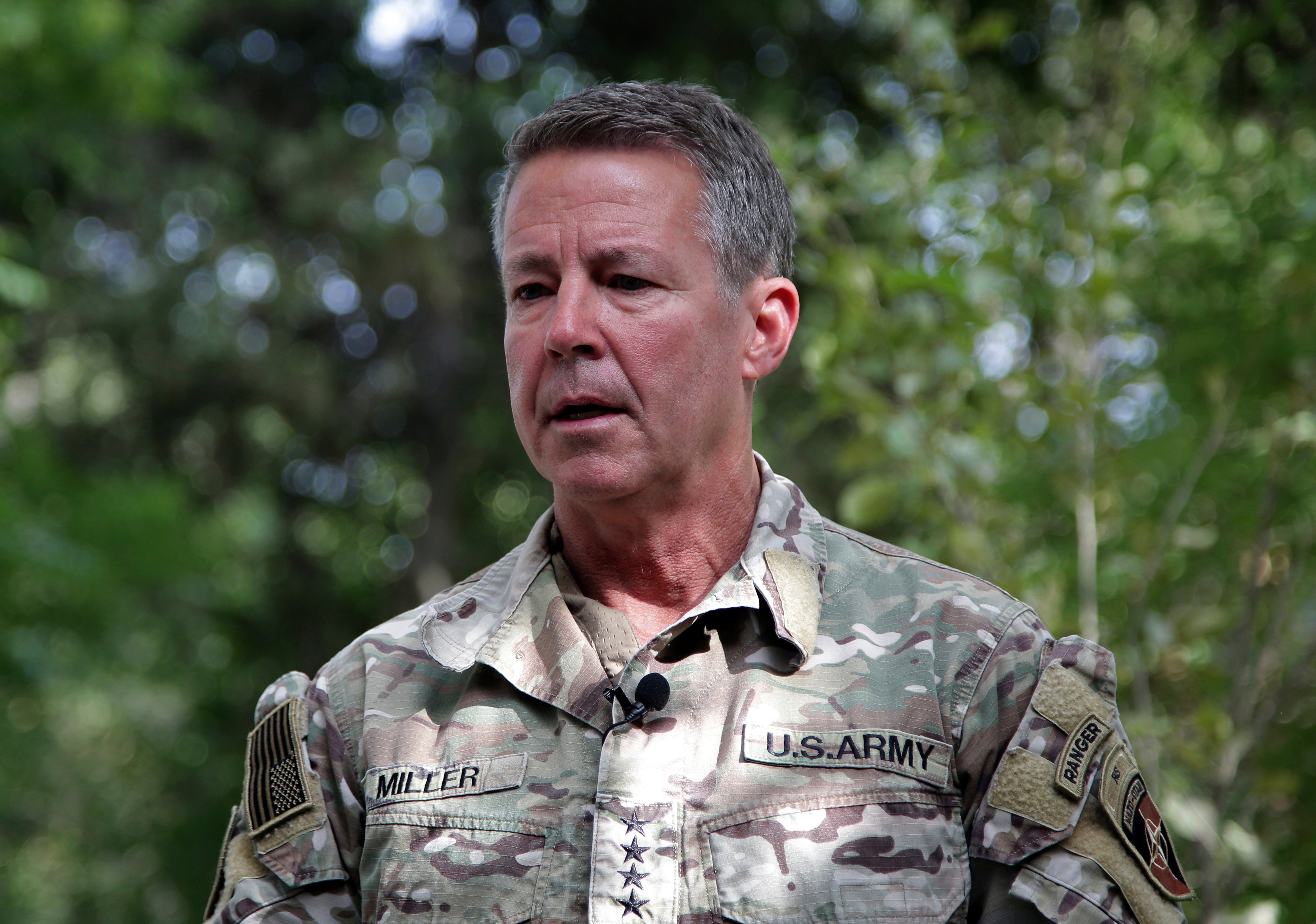Top US commander to exit Afghanistan amid Taliban surge
The top U.S. commander in Afghanistan is handing over his authority at a ceremony as America winds down its 20-year military presence and Taliban insurgents continue to gain territory across the country

The top U.S. commander in Afghanistan is to hand over his command at a ceremony in the capital of Kabul on Monday, as America winds down its 20-year military presence and Taliban insurgents continue to gain territory across the country.
Gen. Scott Miller was poised to transfer authority to Marine Gen. Frank McKenzie the head of U.S. Central Command, according to a U.S. official who spoke on condition of anonymity to confirm the developments.
McKenzie, also a four-star general, will operate from Central Command headquarters in Tampa Florida. He will assume authority to conduct possible airstrikes in defense of Afghan government forces, at least until the U.S. withdrawal concludes by Aug. 31.
The handover ceremony was taking place in the heavily fortified Resolute Support headquarters in the heart of Kabul, at a time of rapid territorial gains by Taliban insurgents across Afghanistan.
The Afghanistan National Defense and Security Forces, mostly funded by the United States and NATO, have put up resistance in some parts of the country, but overwhelmingly Afghan government troops appear to have abandoned the fight.
In recent weeks, the Taliban have gained several strategic districts, particularly along the borders with Iran, Uzbekistan and Tajikistan.
The Taliban control more than one-third of Afghanistan’s 421 districts and district centers. A Taliban claim that they control 85 percent of the districts is widely seen as exaggerated.
After Miller’s departure, a two-star admiral based at the U.S. Embassy in Kabul will oversee the U.S. military’s role in securing the American diplomatic presence in Kabul, including defending the Kabul airport.
Miller’s departure does not reduce the scope of the U.S. military mission in Afghanistan, since McKenzie will assume the authorities now held by Miller to conduct airstrikes in defense of Afghan government forces under certain circumstances.
The conditions under which such strikes might be used are not clear, nor is it known for how long McKenzie will keep the strike authority.
Bookmark popover
Removed from bookmarks